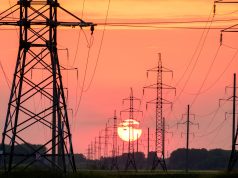Sand mined out of earth is the main component for making bricks that is the fundamental material for construction. UNEP in its report on Sand and Sustainability finds the global demand for sand is at 50 billion tonnes per year. Over the last two decades, the mining of sand has tripled around the world.
Bhojpur district in Bihar is an important part of our country. It is home to a population of 27 lakh persons, many of whom have close ties to the mining of sand. It’s worth asking, why is Bhojpur district, gifted with abundance of sand, also among the 250 most backward districts of India.
How sand is mined, and understanding the systems of exchanges behind it can help find answers to this question on why Bhojpur isn’t able to reap the benefits of its natural resource. In the middle of it all there is also a lesser known story of ecological destruction taking place of Bihar’s rivers and lakes.
The mining of sand in India is largely an illegal activity. In the eyes of law, sand is a minor mineral (Section 3(e) of MMDR Act, 1957) and to extract or handle it in any way requires a licence.
Rights to mine balu ghats are allocated through a bidding process where prices start at Rs 15 to 20 crore for each licence. There is a fixed time allocated for the right to mine these ghats.
In Bihar sand is mined out of 600 ghats alongside a 450 km stretch of Ganga river. Out of this only 160 of them are legitimate in the eyes of the state. Others are organised and operated by the nexus of balu mafia and local MLAs. Balu mafia violate all norms and rules established by the government and encroach way beyond the area allocated to them. Bhojpur district in South Bihar, is said to have 14 such active ghats. These ghats contain mines with large machines to dig, trucks to move the sand, and labourers who work round the clock under the strict supervision of balu mafia.
Revenue generated by the sand extracting mafia is way more than the cost they incur for its extraction. A vast number of trucks loaded with balu can be seen lining stretches of 5 to 6 km in length on most main roads. These trucks alone violate government regulations on weight limits by carrying overloaded quantities of sand.
A part of this high revenue is captured by politicians as rents for their support. Politicians in this region are known to have made huge earnings worth crores of rupees within months. In some instances the mafia themselves have gone on to become politicians to contest in elections. It’s not unusual to see why in Tarari block of Bhojpur District, only two out of its 19 panchayats have better infrastructure compared to the block’s remaining panchayats. These two panchayats are Himadpur and Bihta that have benefited because they are both sites located near the coast of the Son River, where about 80% of the population is directly or indirectly involved in mining sand.
This potential gain and corruption facilitating it makes the nexus strong and difficult to break. Another natural trajectory for the sand mafia is to expand the scope of their operations to include other illegal activities like moving bootlegged liquor, and synthetic drugs that are banned in Bihar.
This is all at a huge cost to the citizens of Bhojpur and Bihar, for whom a large chunk of revenue owed to the state from the mining of sand as a publicly owned natural resource, is lost. This loss is further added to by the loss in revenue from taxing the production and sale of alcohol, given its prohibition in Bihar.
In the middle of it all, there is also a huge cost borne by the environment. A fast depletion of groundwater levels is taking place, where local residents report borewells that offered ground water at 60 feet earlier now have to dig deeper to 150 to 200 feet to find water.
The bigger threat to the environment is from the river changing its natural course due to heavy machinery and indiscriminate mining eroding its banks across the entire river stretch from Koelwar in Bhojpur district to Rohtas in south Bihar.
Tackling the issue of illegal sand mining in Bihar requires more than just legal enforcement. While the nexus between politicians and illegal sand mining must be broken, there is also a larger holistic approach needed to address the underlying factors that drive people into this dangerous trade. The list of reforms must include creating alternative livelihood opportunities, improving infrastructure, and investing in education, and healthcare.
The time to act is now, before the sands of time run out on Bhojpur and its people.
Post Disclaimer
The opinions expressed in this essay are those of the authors. They do not purport to reflect the opinions or views of CCS.





